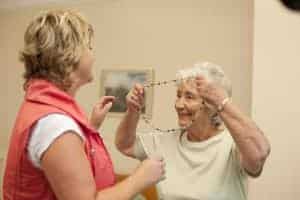Find out how to ensure your later years are as fulfilled, healthy and as active as possible so your quality of life remains high regardless of your age.
In the UK we are an ageing population. Statistics show that the UK population will have reached 74 million by 2039. Currently 18% of people are aged over 65 but it is thought that 25% of the entire UK population will be aged 65 and over within the next 20 years.
Part of the reason for us all living longer is an improvement in healthcare over the last decade. However, with this improvement comes an increase in demand on the NHS and on care services like care homes. For this reason, it is important that we all take responsibility for our health and quality of life in our later years. Nobody wants to think about a time when they might be less independent or less physically able, but there are so many things you can to do ensure you are as healthy as possible, and as prepared as possible. Here are our top tips on how to have a good quality of life in your later years:
Nutrition
Malnutrition is a huge problem for the elderly population because nutrition needs change as you get older. If the right adjustments aren’t made, you can find yourself deficient in lots of essential vitamins and minerals, and facing a decline in health if it isn’t resolved. Seek advice from your GP or healthcare providers on how to adapt your diet to your age and activity levels so your body has everything it needs to help you thrive in later life. And it is particularly important to have high calorie meals if you have little appetite so your body gets what it needs.
Movement
It is a common belief that you have to slow down and move less as you get older, but that simply isn’t the case. You should stay active and mobile for as long as you possibly can. The more you build muscle and flexibility, the more able you will be to avoid bone or muscle damage. Better balance and strength enables you to avoid falls and exercise helps keep your heart in good shape, and helps avoid excessive weight gain.
Care
Regardless of how well you eat and exercise, illnesses and accidents can still happen which may mean you require a little help. Care homes are always an option (sometimes believed to be the only option), but the vast majority of people would rather not move into a care home if they became unwell and unable to care for themselves. The main alternative is receiving care at home where a professional carer will either visit (home care services), or live with you to provide the care and services you need (live-in care). They can provide personal care, help with medication, running errands and more. This can enable you to have a higher quality of life, getting assistance with mobility and nutrition, helping you to maintain and even build independence. With live-in care you get the support you need to live the best possible life at home.
The Next Step
It is a really great idea to plan for later life care as early as you can, so if an injury or illness occurs where you are unable to set plans in place, your relatives and family know exactly what you want in terms of elderly care – whether that is assisted living, a residential care home or care at home. Eating well and exercising well are also excellent ways to ensure that your later life will be as active and fulfilling as possible. Research and prepare, so you can rest assured these later chapters in your life can be just as good as the earlier ones.






2 Comments. Leave new
Maintaining a healthy and active lifestyle in later life is more possible than ever before with live-in care!
Its good to see theres some positive stuff to ageing!